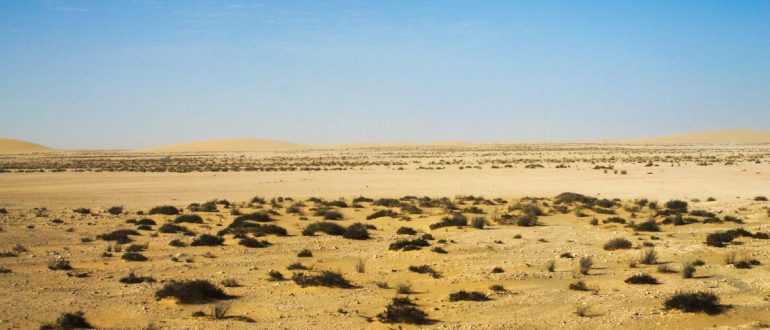
Africa’s Last Colony: The Question of Western Sahara
The Kingdom of Morocco has been readmitted into the African Union (AU) after 33 years. Morocco had left the former OAU in 1984 in protest against the admission of the Sahrawi Arab Democratic Republic (SADR). Intensive diplomacy has now enabled its readmission, but a solution regarding the dispute over Western Sahara is not in sight.
In summer 2016, King Mohammed VI announced that Morocco wanted to retake “its natural place” in the “family” of African states. Emphatic diplomatic lobbying finally resulted in a significant majority of the 54 member states voting for Morocco’s readmission at the AU summit in the Ethiopian capital Addis Ababa at the end of January. Nevertheless, some states displayed considerable resistance and demanded the establishment of a commission to investigate whether Morocco’s membership was a violation of the AU Foundation Act.
The point of contention is Western Sahara on the Atlantic coast in northwest Africa bordering Morocco, Algeria and Mauritania. When Morocco claimed the region in 1975 after the withdrawal of the Spanish colonial authority, despite the fact that the International Court had granted the indigenous Sahrawi people the right to determine the future of Western Sahara themselves, the international community was shocked. After all, by occupying the region, Morocco de facto assumed the role of Spain, turned Western Sahara into Africa’s last colony and triggered a devastating war with the Polisario Front, which is fighting for the liberation of Western Sahara and backed by Algeria. The Polisario Front is considered the Sahrawi people’s representative, though only a few UN states recognise the Sahrawi Arab Democratic Republic (SADR) proclaimed by the Front in 1976.
Morocco’s interest in the region? Abundant fishing resources, the largest phosphate deposits in the world and considerable oil reserves make Western Sahara attractive to the kingdom. The raw materials boost Morocco’s employment market, as well as its shares in the global phosphate market, and could also reduce its dependency on oil imports. Morocco manages the region as if it was part of the kingdom. The Sahrawi people who live to the west of the 2,500-kilometre sand berm, on the other hand, do not perceive any economic growth, but instead experience human rights abuses, discrimination in the job market and the flow of economic gains to Morocco.
The opponents of Morocco’s readmission, particularly Algeria, South Africa and Zimbabwe, have been vehement supporters of an independent Western Sahara since their recognition of the SADR. In addition, Algeria is considered as a player with its own political agenda in this conflict: to limit Morocco’s expansion and regional influence. Algeria has been backing the Polisario forces both militarily and financially since the conflict’s beginning. Morocco’s neighbouring country also provides humanitarian aid. According to UNHCR estimates, the refugee camps in Tindouf in southwestern Algeria accommodate roughly 90,000 people.
Morocco’s readmission undoubtedly holds great symbolic significance for the future of the African continent. It is, however, problematic for the question of Western Sahara. The decision in favour of Morocco and the lack of any prior discussion regarding the status of Western Africa could support Morocco’s presence in Western Sahara and delay a diplomatic solution even further. Since the armistice in 1991, numerous talks regarding a referendum in Western Sahara have failed. Although the Polisario Front’s spokesperson called for further talks and announced that these would now be on equal terms, Morocco has ruled out the region’s independence. The economic gains at stake for the kingdom are too great.
This article was published in April’s issue of the Diplomatic Magazine.
